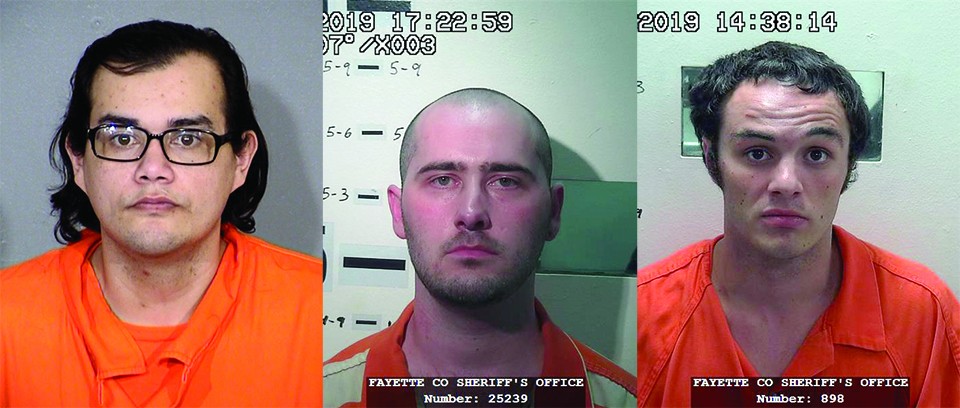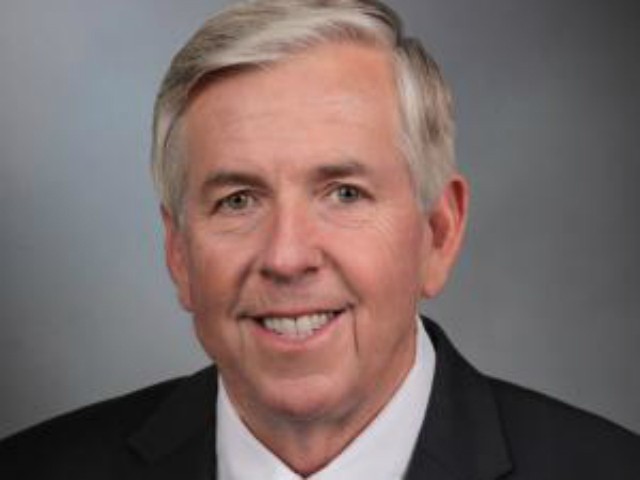
For twenty years, Adam Kavanaugh's hunt for sexual predators has resulted in numerous arrests and convictions. That tends to happen when you're a detective for the St. Louis County Police Department.
And while Kavanaugh is not unsympathetic to their motivations, he makes it clear in an interview with RFT that he sees predator hunter groups, especially that of Anthony Greene and TAP, as worse than ineffective. They just get in the way.
"These guys are doing it for shock value," Kavanaugh charges. "You won't ever see an undercover video where police are confronting people on open parking lots and calling them pedophiles."
Kavanaugh says he's run out of patience with the predator hunting movement. He's repulsed by the on-camera shaming, which he argues undermines the hunters' claims to professionalism. He doesn't like their decoys and distrusts the evidence produced in chatlogs. He notes that anything submitted by the predator hunters, whether chatlogs or video, is just begging for a competent defense attorney to pick apart.
He doesn't like the chaos produced by the collision of police and citizen investigations, such as the incident where, he claims, a police hotline call about a thirteen-year-old girl "prostituting online" turned out to be an adult TAP decoy.
"We were getting emergency subpoenas, trying to find this person," Kavanaugh says. "The last thing on Earth we need is a bunch of people running around saying they're twelve years old."
Then again, that's exactly what's happening in Illinois. When asked about the cooperation between KTS and Fayette County, Kavanaugh is unsparing.
"I disagree with what Illinois is doing, that's my personal opinion," he says, though he later clarifies that he's not familiar with KTS or Kyle Swanson and can't speak to the particular cases.
Still, he adds, Illinois is working against the impressions of St. Louis law enforcement.
"We've tried this with TAP," he points out, "and that fell apart."
Kavanaugh isn't the only member of law enforcement soured on the presence of predator hunters. In a statement to RFT, the Missouri Internet Crimes Against Children Task Force said that its member departments — which include St. Louis city, St. Louis County and St. Charles — are "prohibited from utilizing private citizens to proactively seek out investigative persons of interest."
But for all the complaints, the facts remain. Missouri's predator hunting community is growing. While Greene plans his comeback, in Springfield, a relatively new group known as 417 Predator Hunters has notched more than a dozen sting operations in November alone.
And KTS continues to stage ambushes in Illinois and Missouri. That included a June 22, 2019, sting of a married X-ray technician named Kyle Green, who, in a remarkable turn of events, had already been busted that previous December in a sting conducted by the FBI and investigated by St. Louis County Police — with none other than detective Kavanaugh playing decoy.
"Every once in a while, they'll run into a bad guy, like real bad guys," Kavanaugh admits, though he can't help but note that while KTS' video exposed a predator, it didn't result in any additional charges. Pending trial, Green is facing years in federal prison not because of an embarrassing Facebook video, but because of policework and federal prosecutors.
Kavanaugh insists his objections aren't just sore feelings over who gets to bust the bad guys. He suggests that predator hunters are missing the big picture and that their dramatic sting videos and Facebook groups are actually reaching two audiences: Those who cheer the punishment and spectacle of justice, and predators themselves.
"These guys are paranoid to begin with," Kavanaugh says. "When one of these To Catch a Predator idiots goes out and puts it out over Facebook, of course then our other people disappear."
Kavanaugh says he can already tell something has changed in the landscape. He talks about cybercrime in terms of "ebb and flow," the way that months go by without a bust, and then a burst of activity, like a stretch in November where police made three arrests in a single week. He's certain the predators are watching the hunters, and it feels similar, he claims, to the changes that followed the airing of To Catch a Predator in 2004. Online, these men have become more wary, more skeptical, more demanding — and more afraid of what's lurking behind the message app.
These days, when a potential target snaps that Kavanaugh isn't what he says he is, they don't always accuse him of being a cop before exiting the chat.
"I've had plenty of bad guys tell me 'Nice try, TAP,'" Kavanaugh says, "and then they get away."






